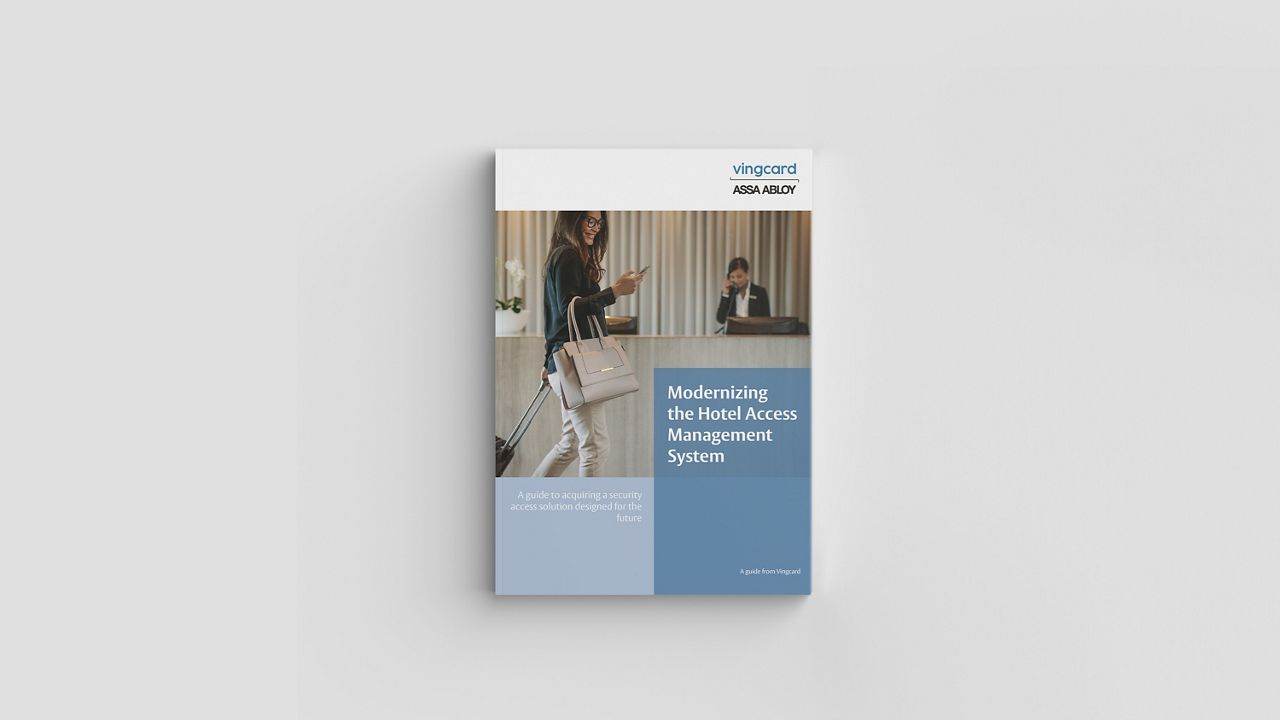Even within hospitality circles, an industry often slow to adapt to new technologies, AI is generating significant excitement on its potential possibilities, and is already making substantial progress in affecting virtually any aspect of modern hotel operations. Capable of streamlining services, offering invaluable insights and personalizing guest experiences to name just some examples, AI technologies are on the fast track to redefining what it means to run an efficient, competitive and ultimately successful hotel business. To keep pace with competing properties in obtaining the heightened results that AI represents, industry professionals must first understand where and how the technology is making an impact, and how they can best leverage such solutions to address the specific interests of their business and guests.
Gaining an Edge in Guest Experience personalization
Top of mind for most hoteliers is the fact that today’s travelers are increasingly moving away from one-size-fits-all experiences in favor of personalized services and offerings. According to recent surveys, 86 percent of travelers are in fact seeking out more personalized interactions.
It’s within this area that AI-based technology is gaining considerable interest, thanks to its ability to analyze mass amounts of data and act decisively on such information almost instantaneously. CRM and revenue management platforms enabled with AI, for example, are now providing hotel sales teams with an edge in tailoring attribute-based sales efforts according to the unique interests of each guest. Bypassing countless hours of manual research, these solutions can often seamlessly retrieve data from a property’s various systems, including the PMS and POS, in order to analyze available details on guest purchase history, preferences, and loyalty program status. Without pulling staff away from other responsibilities, the technology can next determine which promotion or experience aligns best, and can automatically reach out to a guest at the ideal time and with the ideal messaging to maximize the likelihood of a sale.
Such game-changing capabilities are what have already driven 30 percent of hospitality businesses to adopt AI as a primary sales process. With studies indicating that hoteliers who excel at promoting experience personalization typically generate 40 percent more revenue, more and more industry businesses are undoubtedly set to make the switch themselves.
Improving Operational Efficiency and Service Quality
Hotel guests may be demanding personalized experiences, but that certainly does not mean that they are willing to accept a reduction in service quality or response times. If anything, expectations for higher quality and more responsive service have increased at the same time that calls for experience personalization have grown louder.
Through AI, hotel businesses and their employees are now able to receive much needed support. Examples include the use of intelligent chatbots that can effectively respond to guest queries and requests in a timely manner. Without having to wait for staff and taking them away from other tasks, guests able to leverage a chatbot application can be instantly provided with the information they seek. Functionality today includes room service hours, how to make a restaurant reservation or to find out details on available amenity rentals. Thanks to the heightened responsiveness that the technology provides, as many as 75 percent of guests now state a preference for self-service solutions like this in order to handle simple requests.
Even for backend operations such as housekeeping, AI technology is proving to be a game-changer in hoteliers being able adopt higher standards. Instead of housekeeping staff losing time trying to determine which task to work on next or if a room has already been cleaned, AI-enabled task management tools accessible via mobile device ensure seamless workflows and that no responsibility is overlooked. Better still, advanced AI programs can automatically list tasks in order of priority and can adjust priorities as new tasks suddenly arise, such as if a guest decides to check-in early. This advantage importantly translates into an improved response to immediate guest needs. It also means that overstretched staff teams can always focus their efforts where needed most at the right time in order to consistently live up to guest expectations.
Making Informed Decisions Faster & With Better Results
The need for agility and the ability to issue ever faster responses is now a frequent theme for virtually all aspects of modern hotel business management within an increasingly competitive industry. Those able to more swiftly adapt to changing industry trends and guest expectations are who stand to capitalize on new market opportunities at the expense of others.
Hospitality professionals are therefore serving their business interests best by learning how artificial intelligence can now lead to superior decision-making abilities performed almost instantaneously. With regards to a property’s marketing efforts, for example, AI-enabled solutions can automatically and instantly research current or future market conditions in order to identify the most competitive and profitable pricing model. Such solutions can take seasonal conditions, local events, flight reservations and competitor pricing into account, and can instantly adjust pricing across a hotel’s various booking channels. This ensures that businesses are always positioned in the best light to attract the most bookings at the highest level of profitability.
AI is even providing hoteliers with the means to swiftly adapt and respond to fluctuations in service demand volumes. Using newer AI-based workforce management solutions, industry businesses can effortlessly and quickly determine the number of employees required to adequately staff a specific department. Instead of merely assigning staff to fill a shift, managers can now ensure that they are making the best use out of their available employee resources. This allows them to sidestep understaffing or overstaffing issues that so often jeopardize business reputations and upend budgets.



